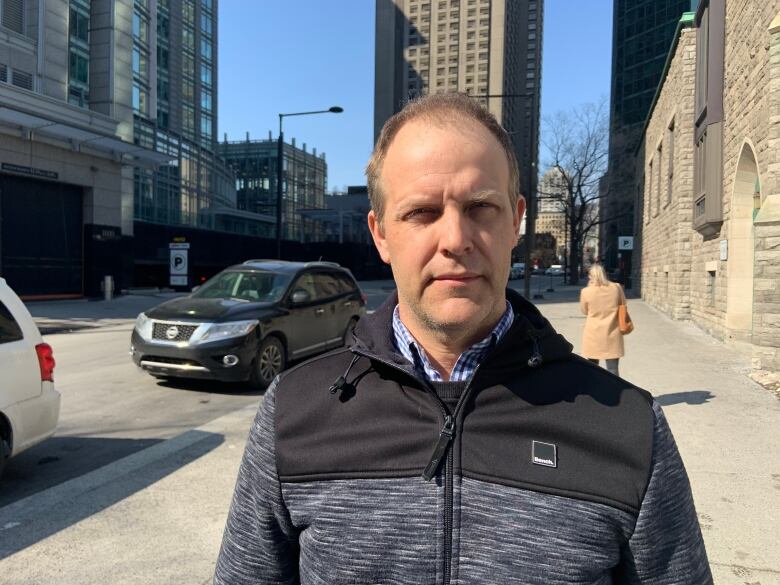How Deux-Montagnes commuters are avoiding 'mitigation measures' as REM work closes tunnel
Main plan sees riders using 3 different modes of transportation when Mount Royal Tunnel closes

When the Mount Royal tunnel closes at the end of thismonth, the Deux-Montagnes commuter rail line will end service at the Bois-Franc station.
To get downtown, commuters can hop on a shuttle bus to the Cte-Vertu Metro station, where they'll then board the western branch of the Orange line to reach the city centre.
But with the route expected to take longer and involve multiple transfers, that option is a hard sell for some riders.
Gaetano Tagliariniis planningto keep his commute as close to his current travel time as possible.
It currently takes him just over 50 minutes from his home near the Grand-Moulin station in Deux-Montagnes to his office on McGill College Avenue.
With the tunnel closing so work on the REM light-rail network can be done, he'd rather travel in the early morning hours using an Exo bus route that heads straight downtown.
"I find there's a lot of risk involved with all the connections.If oneshuttle is not available, it would definitely delay my commute," he said.
Wendy Claus has been boarding the train at the Sainte-Dorothe station in Laval for 30 years.
She'll work from home a couple of days a week. And when she has to go in the office, it won't be by train.
"I'm probably going to take a more direct bus that goes from Saint-Eustache to Montmorency Metro, and take the Metro to go into downtown," she said.

A push for better solutions
Francis Millaire, spokesperson for the group Rally Train Deux-Montagnes, has been hearing concerns from commuters since the announcement of the tunnel closure.
He drives to the Deux-Montagnes station from Saint-Eustache, andhis current commute is about one hour and 15 minutes.
Millaire is pushing for a better solution from all those involved in the REM project.
Last week, Chantal Rouleau, the province's deputy transport minister,said the province will make way for a reserved bus lane on Highway 13 starting this spring.
She has not specified what distance the reserved lane of Highway 13 will cover.
"Let's make these [reserved lanes] happen before the service stops," Millaire said.
A spokesperson for Quebec environment minister and MNA for Deux Montagnes, Benoit Charette, told CBC in a statement that Charette has been working closely with Rouleau"to ensure the experience is as painless as possible for train users in the circumstances."
"We're confident that the mitigation measures will limit the impact of the Mount Royal Tunnelclosure."
No choice but to ride
Sihem Chaouch will be allowed to work from home at least two days a week to start, and is hoping for more days.
But she may still have to use the proposed combination of train-bus-Metro.

"I'm worried there will be too many of us on the bus, too many of us on the Metro, and it will be jammed everywhere," she said.
The portion south of Bois-Franc is closing to prepare the Mount Royal Tunnel for the start of REM service in 2022.
But Deux-Montagnes users will be affected for much longer, as the entire line shuts down in mid-2021, and with the entire REM network only expected to be in service in 2023.
Tagliarini hasn't thought that far ahead yet, but aims to control what he can in the short term.
"For all those involved, try to stay positive," he said. "I know it's going to be rough. Try to work out with your employer some sort of a plan."
For Claus, it comes down to preserving family life, and livelihood.
"You depend on your family life to be able to have your family life," she said. "And if you can't get there or if you're too exhausted to get there and back it's too many things that are affecting people's lives."












_(720p).jpg)


 OFFICIAL HD MUSIC VIDEO.jpg)
.jpg)



























































































